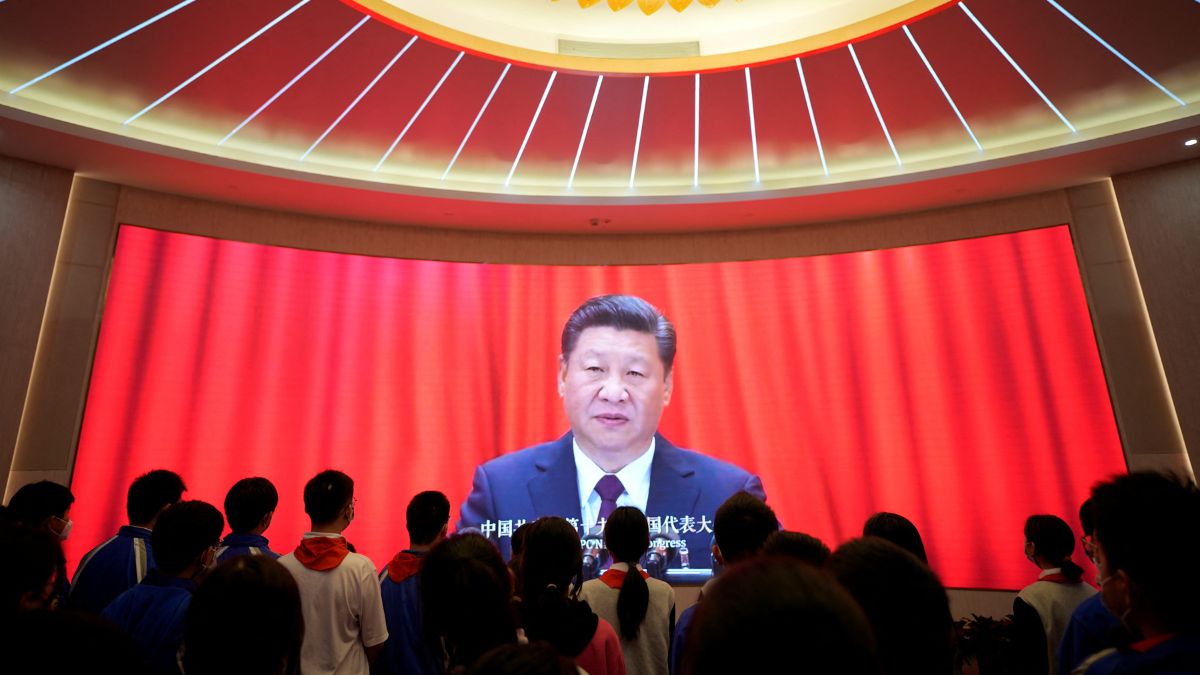In recent years, the term ‘neijuan’ has become a central concern for China’s economic and social landscape.
Known in English as “involution,” this phenomenon encapsulates the pervasive sense of diminishing returns despite increasing effort. It affects industries, individuals, and local governments.
What is “neijuan”?
Neijuan is a sociological term that originally described stagnation in social evolution despite intense effort. The term combines the characters ‘nei’ (inward) and ‘juan’ (rolling), painting a picture of a society stuck in an exhausting loop. Applied to individuals, it means relentless hard work without meaningful progress.
The phenomenon first gained attention during the COVID-19 pandemic and became a viral topic online in 2020 when a student from Tsinghua University was filmed riding a bike with a laptop balanced on the handlebars, symbolising the absurd pressure of China’s rat race.
Since then, the term has expanded to describe economic inefficiencies and stagnation in industries like renewable energy and technology.
In China’s economy, neijuan often manifests as intense competition without significant innovation or growth. This “excessive competition” drains resources, undermines profitability, and exacerbates economic pressures across multiple sectors.
Which industries are grappling with “neijuan”?
Renewable energy sector
The renewable energy industry—particularly in new energy vehicles (NEVs) and photovoltaics (PV)—is among the hardest hit by neijuan.
In the NEV sector, a fierce price war among Chinese automakers has resulted in significant profit erosion. Between January and June 2023, 136 car models saw price cuts, almost matching the total number of reductions in the entire previous year, according to the China Automobile Dealers Association.
The PV industry faces overcapacity issues. In 2022, China’s production of polysilicon, wafers, and modules surged by over 64 per cent, yet market demand fell short. This imbalance led to aggressive price wars, with profit margins plunging by approximately 70 per cent, as noted by Zhu Gongshan, chairman of the Asian Photovoltaic Industry Association.
“Low prices driven by inferior quality and cost-cutting don’t bring economic benefits and lack sustainability,” Robin Zeng, chairman of Contemporary Amperex Technology was quoted by SCMP at the Global Energy Storage Conference. He criticised the “gold-rush mindset” of some energy companies.
Education and Employment sector
Neijuan is also prevalent in China’s education system, where students face an “arms race” of extracurricular activities to secure placements in prestigious schools. This pressure has trickled down to younger students, with some nine-year-olds sacrificing sleep and social time to prepare for elite middle school admissions.
The problem extends to the job market. Youth unemployment hit a record 21.3 per cent in mid-2023, reflecting limited opportunities for an overqualified workforce.
Industries that once absorbed large numbers of graduates, like private tutoring, have shrunk dramatically due to government policies such as the 2021 “double reduction” initiative, which banned for-profit tutoring and displaced millions of workers.
Local governments have also fallen into the trap of neijuan, competing to attract businesses with generous policies that often neglect long-term economic sustainability. This “race to the bottom” undermines regional economic stability and contributes to broader national challenges.
How has Beijing responded to “neijuan”?
China’s central government has acknowledged neijuan as a significant obstacle to economic development and has taken steps to combat it. At the Summer Davos Forum in June, Premier Li Qiang identified inefficient competition as a key challenge, urging industries to focus on long-term growth rather than short-term gains.
The Communist Party’s Politburo and the Central Economic Work Conference have echoed these concerns. In December 2023, officials called for the “comprehensive rectification of involutionary competition,” with plans to regulate industries and local governments more tightly.
CGTN quoted Han Wenxiu, executive deputy director of the Office of the Central Committee for Financial and Economic Affairs, who stated the need for “market-oriented and legal means” to address these challenges, including setting stricter standards for technology, safety, and environmental sustainability.
Industry leaders have voiced support for these measures. Zeng Qinghong, chairman of state-owned automaker GAC Group, stressed the importance of “long-termism” and innovation. “Long-termism helps companies avoid getting caught in short-term battles and opportunistic games,” he said, according to SCMP.
What is the social impact of “neijuan”?
For China’s younger generations, neijuan represents a broader disillusionment with the social contract. Millennials and Gen Z feel that the opportunities enjoyed by their parents are no longer attainable, despite greater educational qualifications.
This sentiment has fuelled alternative movements like ‘tangping’ (lying flat), which rejects relentless competition in favour of a minimalist lifestyle.
Also Watch:
Whether through stricter regulations, industry innovation, or cultural shifts, the fight against involution is not just an economic imperative but a societal one.
With inputs from agencies


)

)
)
)
)
)
)
)
)



